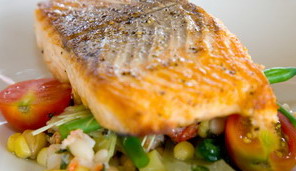Overeating May Harm Memory
by Dr. Andrew Weil
In This Week’s Issue:
Overeating May Harm Memory
The more you eat daily once you reach the age of 70, the higher your risk for memory problems, and possibly Alzheimer’s disease. Investigators at the Mayo Clinic came to this conclusion after analyzing data on more than 1,200 seniors in Olmstead County, Minnesota. They found double the risk of memory impairment among the participants who consumed between 2,143 and 6,000 calories per day compared to those whose calorie consumption was lowest – between 600 and 1,525 per day. A third group of participants consumed between 1,526 and 2,142 daily calories and had no added risk of Alzheimer’s. The higher risk of memory deficits among the big eaters doesn’t prove that overeating causes memory problems but may mean that cutting back on calories could be good for the brain. The study is to be presented in April at the annual meeting of the American Academy of Neurology.
My take? Consistent overeating can lead to obesity, which is clearly associated with many health problems. This new study suggests that it can also have an adverse effect on brain health. As far as the type of food eaten is concerned, we know that people with high levels of a toxic amino acid known as homocysteine have twice the usual risk of developing Alzheimer’s, and that these levels tend to be higher in those who eat a lot of animal protein. A diet that includes plenty of fruits and leafy green vegetables provides folic acid and other B vitamins that help the body reduce homocysteine levels. In addition to prudent portions, cutting back on animal protein and eating more plant foods is a good idea for general health, and may help to prevent Alzheimer’s, too.

